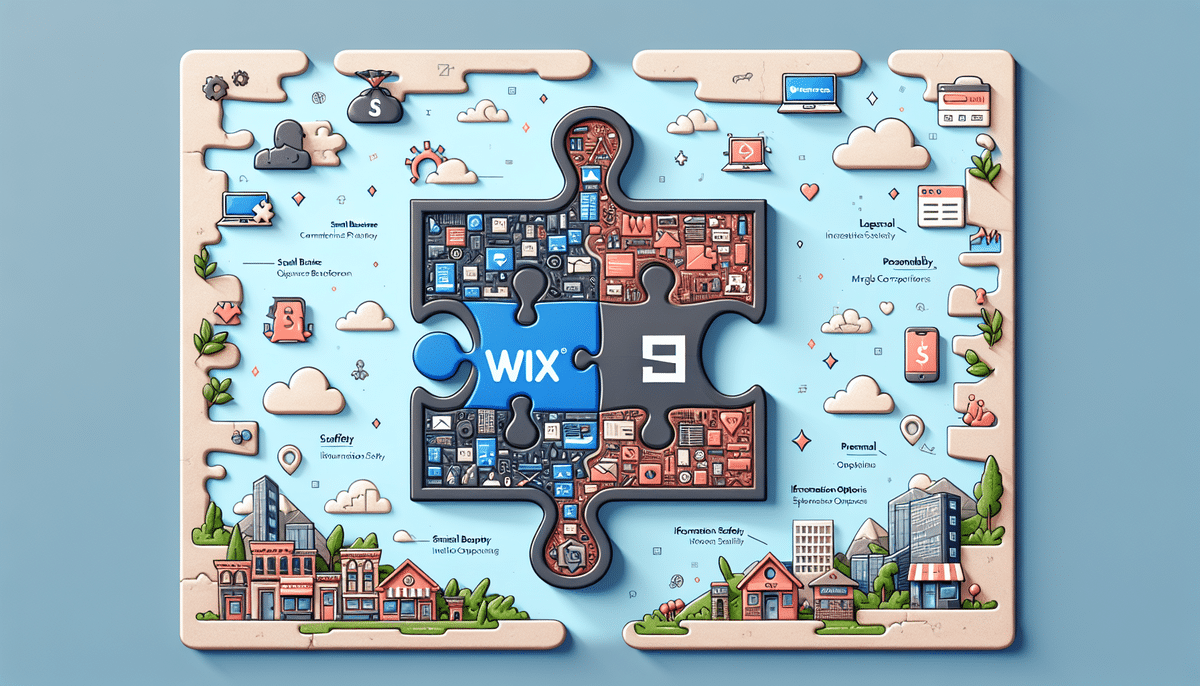Introduction to Amazon and Wix eCommerce Platforms
In the rapidly evolving digital marketplace, selecting the right eCommerce platform is crucial for business success. Amazon and Wix are two prominent players offering distinct solutions tailored to different business needs. Amazon stands as a titan in the online retail space, providing extensive reach and robust logistics support. Conversely, Wix is celebrated for its user-friendly website builder, empowering businesses to create customized online stores with ease. This comparison delves into their features, pricing, user experience, and more to help you determine which platform aligns best with your business objectives.
Features and Functionality
Design Customization
Amazon offers limited design customization options, primarily focusing on product listings and storefront branding within its predefined templates. This approach ensures consistency but may restrict unique branding efforts.
On the other hand, Wix excels in design flexibility. With over 500 templates and a drag-and-drop editor, businesses can create visually appealing and highly personalized online stores. This level of customization is ideal for brands seeking to establish a distinct online presence.
Payment Gateways
Amazon simplifies payment processing through Amazon Pay, allowing customers to use their Amazon accounts for transactions. This integration enhances trust and streamlines the checkout process.
Wix supports multiple payment gateways, including PayPal, Stripe, and Square. Additionally, Wix Payments offers seamless integration, enabling businesses to manage transactions directly within the platform. This variety provides flexibility to cater to diverse customer preferences.
Customer Support
Amazon provides extensive customer support through dedicated seller forums, a comprehensive knowledge base, and direct support channels for pressing issues. Their support structure is designed to assist businesses in navigating platform policies and optimizing sales.
Wix offers multi-channel support, including email, phone, and live chat. Their vast library of tutorials and community forums empowers users to resolve common issues independently, fostering a supportive environment for store owners.
SEO Optimization
Amazon enhances product visibility through its internal search algorithms, emphasizing relevance and sales performance. Optimizing product titles, descriptions, and utilizing Amazon Advertising can significantly improve search rankings within the platform.
Wix provides robust SEO tools, including customizable meta tags, URL structures, and integration with Google Analytics. Additionally, Wix’s SEO Wiz guides users through optimizing their websites, making it accessible for those without technical expertise.
Marketing Tools
Amazon offers targeted advertising solutions like Sponsored Products and Sponsored Brands, enabling businesses to reach specific customer segments. These tools are integral for increasing product visibility and driving sales within Amazon's ecosystem.
Wix includes built-in marketing tools such as email marketing, abandoned cart recovery, and social media integrations. These features facilitate comprehensive marketing strategies beyond the confines of the platform, aiding in broader brand promotion.
Pricing and Costs
Amazon operates on a subscription-based model with its Professional plan costing $39.99 per month. Additionally, Amazon charges referral fees ranging from 6% to 15% per sale, depending on the product category. These fees cover access to Amazon’s extensive customer base and fulfillment services.
Wix offers tiered pricing plans tailored to different business needs, starting at $23 per month for the Business Basic plan up to $49 per month for the Business VIP plan. Unlike Amazon, Wix does not impose commission fees on sales, allowing businesses to retain more of their revenue. However, additional costs may arise from premium apps or advanced features.
When evaluating costs, consider not only the subscription fees but also the potential marketing expenses and transaction fees associated with each platform. For instance, Amazon’s higher referral fees may impact profit margins, especially for low-priced items, whereas Wix’s flat-rate pricing can be more predictable for budgeting purposes.
Pros and Cons of Each Platform
Amazon eCommerce Platform
Pros:
- Extensive global customer reach
- Robust fulfillment and logistics support through Fulfillment by Amazon (FBA)
- Powerful advertising tools tailored to Amazon’s ecosystem
- Access to detailed customer analytics and insights
Cons:
- Significant fees and commissions can reduce profit margins
- Strict policies and high competition among sellers
- Limited control over branding and direct customer relationships
- Dependence on Amazon’s platform for sales
Wix eCommerce Platform
Pros:
- User-friendly interface with extensive customization options
- No commission fees on sales, allowing businesses to retain full profits
- Comprehensive suite of marketing and SEO tools
- Flexible payment options and integrations with major gateways
Cons:
- Smaller built-in customer base compared to Amazon
- May require additional marketing efforts to drive traffic
- Limited scalability for very large or complex businesses
- Potential additional costs for premium features and integrations
User Experience Comparison
Amazon offers a familiar and trusted shopping experience for customers, which can translate into higher conversion rates. However, the platform’s seller interface can be complex, potentially posing a steep learning curve for new users. Managing listings, inventory, and orders within Amazon’s ecosystem requires careful navigation of their policies and tools.
Wix prioritizes ease of use with its intuitive drag-and-drop editor, making store setup and management straightforward even for those without technical expertise. The platform’s customizable templates ensure a unique storefront, enhancing the overall user experience. Additionally, Wix’s mobile optimization guarantees a seamless shopping experience across devices, catering to the growing number of mobile shoppers.
Case Studies of Successful Businesses
Numerous businesses have thrived using both Amazon and Wix platforms:
- Anker: Leveraging Amazon’s fulfillment network, Anker has streamlined its logistics and scaled its operations globally, becoming a leading brand in consumer electronics.
- Popsockets: Utilizing Amazon’s vast customer base, Popsockets achieved significant sales growth and brand recognition through strategic advertising and optimized listings.
- Joyrich: A fashion brand that excels on Wix, Joyrich benefits from the platform’s design flexibility to create a visually appealing online store, coupled with effective email marketing campaigns to engage customers.
These case studies highlight how different platforms can cater to varying business needs, whether it’s leveraging Amazon’s extensive reach or Wix’s design-centric approach.
Best Platform for Different Business Sizes
Small Businesses
Wix is particularly well-suited for small businesses due to its affordable pricing plans, intuitive design tools, and comprehensive feature set. The ability to create a customized store without incurring commission fees allows small businesses to maintain better profit margins while establishing a unique brand presence online.
Large Businesses
Amazon serves larger businesses effectively by providing access to a massive customer base and robust fulfillment services. The platform’s advanced advertising tools and detailed analytics support large-scale operations and strategic growth initiatives. However, larger businesses must navigate Amazon’s competitive environment and adhere to its stringent policies to maximize their success.
Conclusion: Choosing the Right Platform for Your Online Store
Deciding between Amazon and Wix eCommerce platforms hinges on your business size, objectives, and operational preferences. Amazon is ideal for businesses seeking extensive reach and streamlined logistics support, making it a powerhouse for large-scale operations. In contrast, Wix offers unparalleled design flexibility and cost-effective solutions tailored for small to medium-sized businesses aiming to establish a strong, personalized online presence.
Ultimately, the choice depends on your specific needs: if accessing a vast, global marketplace with robust fulfillment is your priority, Amazon is the way to go. If you value creative control and a customizable storefront to build your brand identity, Wix will likely serve you better. Assess your business goals, budget, and desired level of control to make an informed decision that propels your eCommerce venture toward success.




















